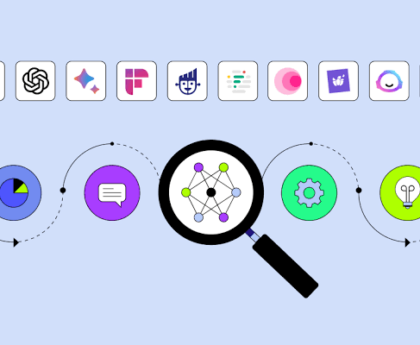
Explore how AI for personalised marketing is revolutionizing campaigns in 2025 with data-driven insights, dynamic content, and predictive engagement strategies.
Table Of Contents
- How AI for Personalised Marketing Is Reimagining Brand-Audience Bonds
- How AI for Personalised Marketing Powers Human-Centric Strategies
- Top Tools Behind AI for Personalised Marketing Excellence
- Uncovering the Real Benefits of AI for Personalised Marketing in 2025
- Winning Campaign Tactics Using AI for Personalised Marketing
- Data Ethics and AI Personalization
- Future Outlook
- Conclusion
How AI For Personalised Marketing Is Reimagining Brand-Audience Bonds

The digital marketing world in 2025 is data-hungry, automation-heavy, and user-focused. As brands seek better results and deeper connections, AI for personalised marketing has become the gold standard. It allows marketers to move from mass messaging to meaningful one-on-one experiences—without sacrificing scale or efficiency.
How AI For Personalised Marketing Powers Human-Centric Strategies
With consumer behavior changing rapidly, the one-size-fits-all approach no longer works. AI helps marketers interpret behavior, intent, and preferences to deliver hyper-targeted messaging. Powered by machine learning in marketing, AI systems can analyse massive datasets and personalise interactions at every touchpoint.
Through real-time behavioral targeting strategies, brands can respond to customer actions instantly, improving engagement and conversion rates across channels.
Top Tools Behind AI For Personalised Marketing Excellence
Behind successful campaigns are powerful AI marketing tools designed to enhance customer journeys. Tools like predictive engines, NLP-based chatbots, and generative AI tools for content enable marketers to tailor content with pinpoint accuracy.
Dynamic content personalisation is another major asset. AI adapts landing pages, emails, and product recommendations in real-time based on user data, helping brands build customised customer journeys that are both relevant and responsive.
Uncovering The Real Benefits Of AI For Personalised Marketing In 2025
Implementing AI for personalised marketing delivers measurable returns:
- Higher Engagement: Customized experiences hold user attention longer.
- Improved Conversion Rates: Relevant messaging boosts buyer confidence.
- Smarter Budgeting: AI minimizes waste by refining target segments.
- Customer Loyalty: Personal touches drive emotional connections.
By leveraging automated personalisation strategies, brands also reduce manual effort while increasing marketing precision and ROI.
Winning Campaign Tactics Using AI For Personalised Marketing
1. AI-Powered Customer Segmentation
Successful personalisation begins with precise segmentation. AI can break down audiences using behavioral and contextual data. These advanced insights enable marketers to design more meaningful campaigns powered by predictive personalisation techniques.
2. Dynamic Personalisation in Action
From personalised email subject lines to on-site product recommendations, dynamic content personalisation creates context-aware experiences that convert. AI marketing tools make this seamless, even across multiple devices and platforms.
3. Predictive Targeting & Lead Scoring
With predictive personalisation techniques, marketers can identify and nurture high-intent users by scoring leads based on real-time actions. AI even anticipates the next best offer or content piece for individual users—boosting both conversions and retention.
4. Real-Time Engagement Across Channels
Using hyper-personalised marketing platforms, brands now send instant responses, discounts, or content that reflects live user behavior. This is where real-time behavioral targeting strategies truly shine—making each interaction timely and relevant.
Data Ethics & AI Personalisation
As data becomes the fuel for AI, marketers must tread carefully. Transparency, consent, and fairness are crucial. Organisations using AI for personalised marketing must clearly communicate how data is collected and used.
There’s also a growing focus on mitigating algorithmic bias. Ethical AI not only safeguards users but also helps build long-term brand trust. The use of AI-enhanced customer engagement should always align with privacy-first principles.
Future Outlook
Looking ahead, AI’s role in marketing will expand into more autonomous and predictive capabilities. Brands adopting generative AI tools for content will see faster production and hyper-relevant storytelling.
Hyper-personalised marketing platforms will evolve to offer even greater control, enabling real-time decision-making across complex digital ecosystems. As personalisation deepens, expect AI to become central to loyalty programs, voice marketing, and even augmented reality experiences.
Conclusion
In the rapidly evolving digital space, AI for personalised marketing is no longer optional—it’s the key to relevance, trust, and long-term growth. By combining data intelligence with emotional resonance, AI helps marketers deliver experiences that not only convert but also delight.
Brands that master this transformation today will be tomorrow’s industry leaders. Whether through automated personalisation strategies, dynamic content personalisation, or AI-enhanced customer engagement, the path to success in 2025 runs through AI.





